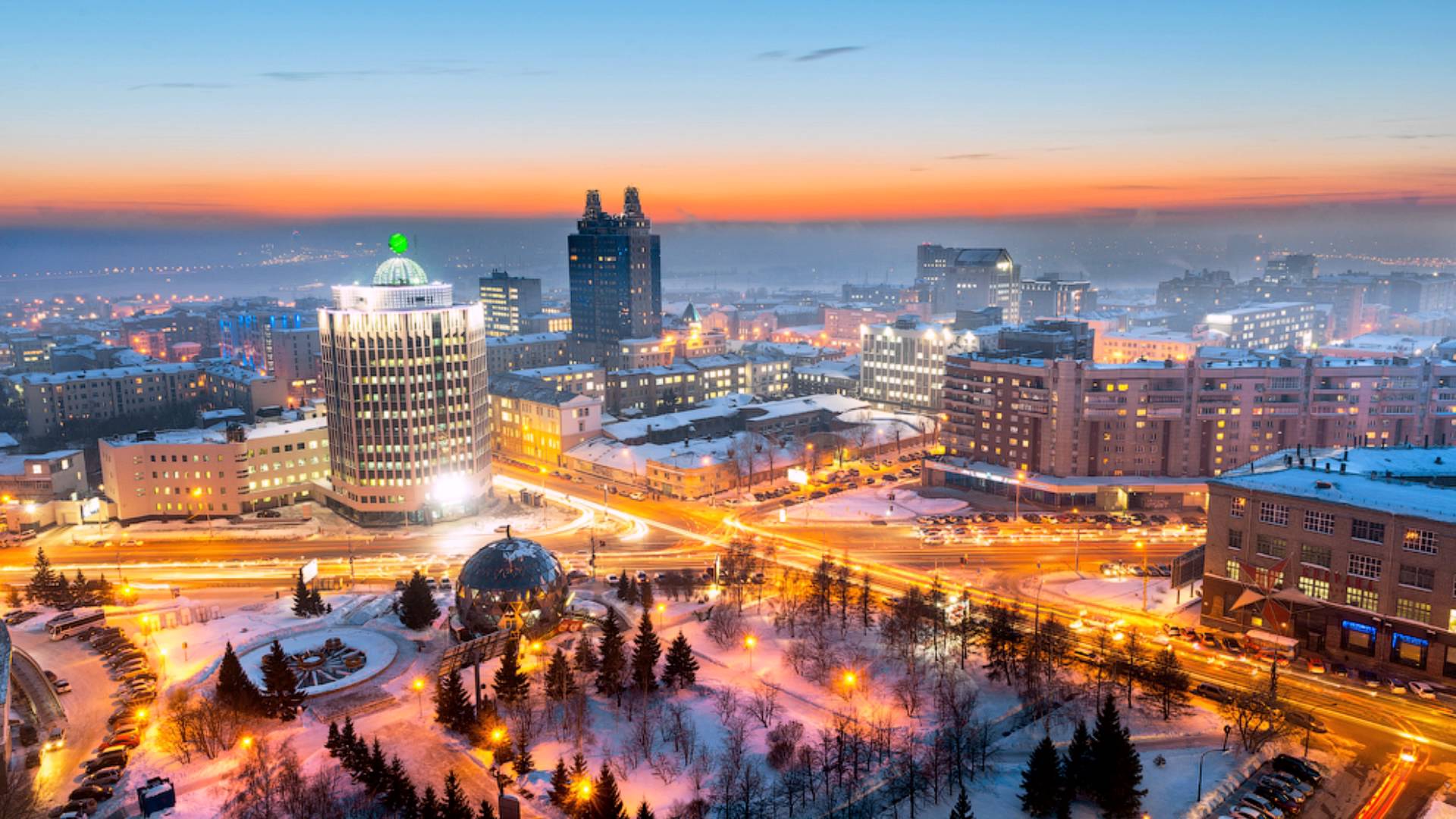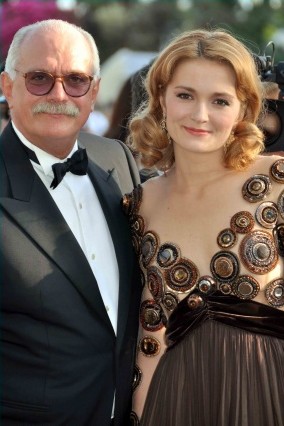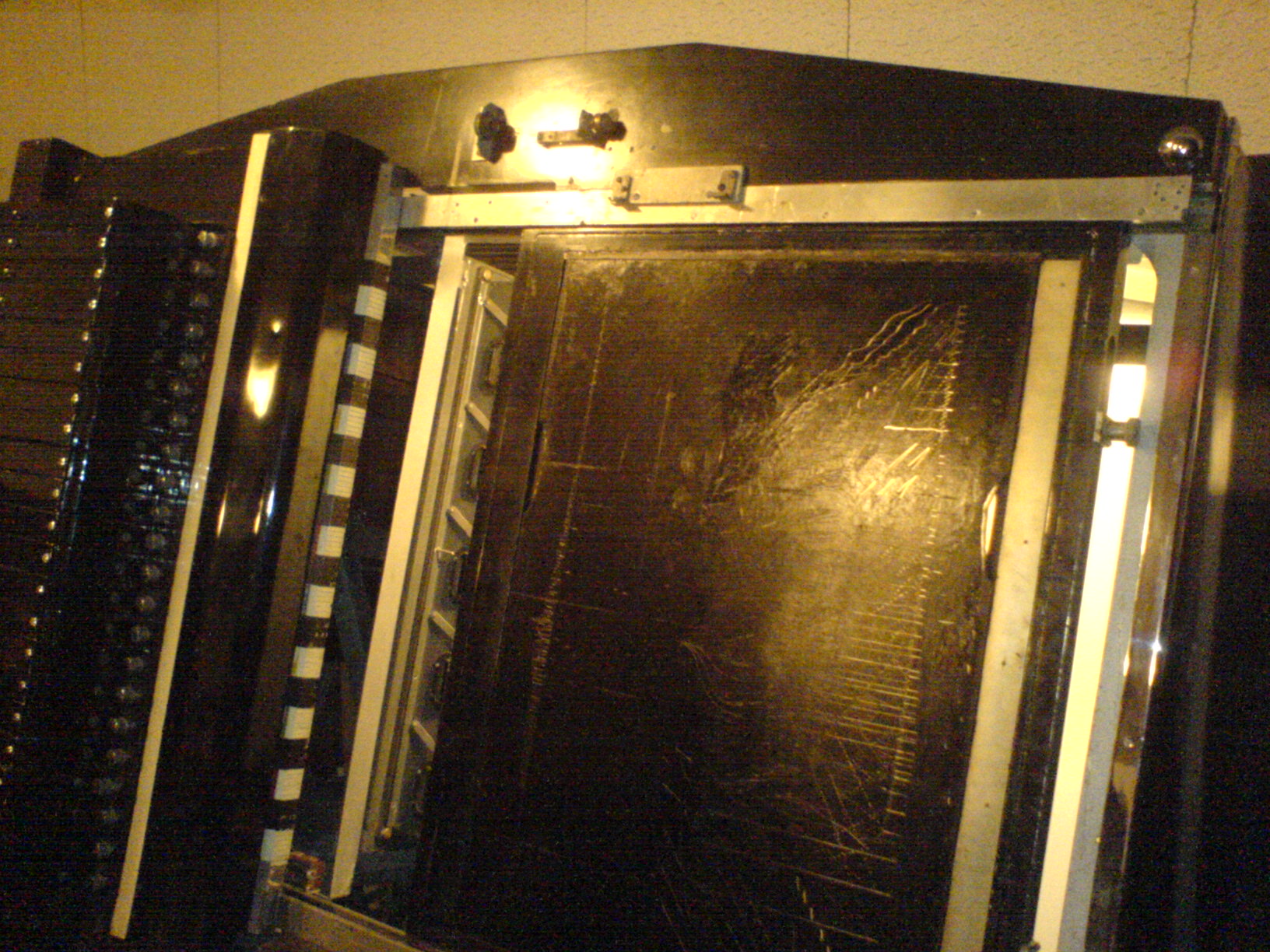|
Eduard Artemiev
Eduard Nikolayevich Artemyev ( rus, Эдуа́рд Никола́евич Арте́мьев, p=ɨdʊˈart ɐrˈtʲemʲjɪf; born 30 November 1937) is a Soviet and Russian composer of electronic music and film scores. Outside of Russia, he is mostly known for his soundtracks for films such as '' At Home Among Strangers'', '' Solaris'', '' Siberiade'', ''Stalker'' and '' Burnt by the Sun''. He was awarded the title People's Artist of Russia in 1999. Biography Artemyev was born in Novosibirsk and studied at the Moscow Conservatory under Yuri Shaporin. His interest in electronic music and synthesizers began after his graduation in 1960, when electronic music was still in its infancy. He wrote his first composition in 1967, on one of the first synthesizers, the ANS synthesizer developed by the Soviet engineer Yevgeny Murzin. He was thus one of the first composers and a pioneer of electronic music. His collaboration with the film director Andrei Tarkovsky in the 1970s made h ... [...More Info...] [...Related Items...] OR: [Wikipedia] [Google] [Baidu] |
Novosibirsk
Novosibirsk (, also ; rus, Новосиби́рск, p=nəvəsʲɪˈbʲirsk, a=ru-Новосибирск.ogg) is the largest city and administrative centre of Novosibirsk Oblast and Siberian Federal District in Russia. As of the 2021 Census, it had a population of 1,633,595, making it the most populous city in Siberia and the third-most populous city in Russia. The city is located in southwestern Siberia, on the banks of the Ob River. Novosibirsk was founded in 1893 on the Ob River crossing point of the future Trans-Siberian Railway, where the Novosibirsk Rail Bridge was constructed. Originally named Novonikolayevsk ("New Nicholas") in honor of Emperor Nicholas II, the city rapidly grew into a major transport, commercial, and industrial hub. Novosibirsk was ravaged by the Russian Civil War but recovered during the early Soviet period and gained its present name, Novosibirsk ("New Siberia"), in 1926. Under the leadership of Joseph Stalin, Novosibirsk became one of the large ... [...More Info...] [...Related Items...] OR: [Wikipedia] [Google] [Baidu] |
Burnt By The Sun
''Burnt by the Sun'' (russian: Утомлённые солнцем, translit. ''Utomlyonnye solntsem'', literally "wearied by the sun") is a 1994 film by Russian director and screenwriter Nikita Mikhalkov and Azerbaijani screenwriter Rustam Ibragimbekov. The film depicts the story of a senior Red Army officer, played by Mikhalkov, and his family during the Great Purge of the late 1930s in the Stalinist Soviet Union. While on vacation with his wife, young daughter, and assorted friends and family, things change dramatically for Colonel Kotov when his wife's old lover, Dmitri, shows up after being away for many years. The film also stars Oleg Menshikov, Ingeborga Dapkūnaitė and Mikhalkov's daughter Nadezhda Mikhalkova. ''Burnt by the Sun'' was popular in Russia and received positive reviews in the United States. It won the Grand Prix at the 1994 Cannes Film Festival, the Academy Award for Best Foreign Language Film and other honours. Plot The entirety of the film takes ... [...More Info...] [...Related Items...] OR: [Wikipedia] [Google] [Baidu] |
Muse (Valery Leontiev Album)
''Muse'' is the first studio album of Valery Leontiev. released in USSR. The authors of the songs in the album are very well-known poets and composers (Raimonds Pauls, Vladimir Shainsky, Aleksandra Pakhmutova, David Tukhmanov, etc.). Singer Valery Leontiev's newly released album won instant popularity. Theme songs mostly - romance, memories, love of country, and of course the girl-muse, that certainly was a decisive moment in the choice of the album title. Track listing # Hang-gliding (Eduard Artemyev - AN Zinoviev) # Darling party (AD Tukhmanov - I. Shaferan) # A man's heart (A. Pakhmutova - N. Dobronravov) # There, in September (D. Tukhmanov - L. Derbenyov) # Colorful Fair (J. Laskowski - r.t.B.Purgalina) # River Childhood (V. Shainsky - R. Rozhdestvensky) # If you go away (R. Pauls - A. Dementiev) # Muse (R. Pauls - Andrei Voznesensky Andrei Andreyevich Voznesensky (russian: link=no, Андре́й Андре́евич Вознесе́нский, 12 May 1933 &ndash ... [...More Info...] [...Related Items...] OR: [Wikipedia] [Google] [Baidu] |
The Cosmonaut
''The Cosmonaut'' (''El Cosmonauta'') is a Spanish science-fiction film, directed by Nicolás Alcalá and produced by Carola Rodríguez and Bruno Teixidor. It premiered in May 2013. The first feature-length project of ''Riot Cinema Collective'' is notable for its use of crowdfunding and Creative Commons license in its production. Plot In 1967, two young friends, Stas and Andrei, arrive to the newly built Star City (near Moscow) where the first cosmonauts trained to go into space, and where a race against the clock to beat the Americans into space takes place. Stas and Andrei will witness first-hand the political plots, the fights for power and the successes and failures of the Soviet Union in some of the greatest achievements of the 20th century. They will meet Yulia, a communications technician, with whom they will strike up a strong friendship, always close to love but never consummated. Influences The main influences behind ''The Cosmonauts conception and filmmaking approa ... [...More Info...] [...Related Items...] OR: [Wikipedia] [Google] [Baidu] |
Spain
, image_flag = Bandera de España.svg , image_coat = Escudo de España (mazonado).svg , national_motto = '' Plus ultra'' ( Latin)(English: "Further Beyond") , national_anthem = (English: "Royal March") , image_map = , map_caption = , image_map2 = , capital = Madrid , coordinates = , largest_city = Madrid , languages_type = Official language , languages = Spanish , ethnic_groups = , ethnic_groups_year = , ethnic_groups_ref = , religion = , religion_ref = , religion_year = 2020 , demonym = , government_type = Unitary parliamentary constitutional monarchy , leader_title1 = Monarch , leader_name1 = Felipe VI , leader_title2 = Prime Minister , leader_name2 = Pedro Sánchez , legislature = ... [...More Info...] [...Related Items...] OR: [Wikipedia] [Google] [Baidu] |
Nika Award
The Nika Award (sometimes styled NIKA Award) is the main annual national film award in Russia, presented by the Russian Academy of Cinema Arts and Science, and seen as the national equivalent of the Oscars. History The award was established in 1987 in Moscow by Yuli Gusman, and ostensibly modelled on the Oscars. The Russian award takes its name from Nike, the goddess of victory. Accordingly, the prize is modelled after the sculpture of the Winged Victory of Samothrace. The oldest professional film award in Russia, the Nika Award was established during the final years of USSR by the influential Russian Union of Filmmakers. At first the awards were judged by all the members of the Union of Filmmakers. In the early 1990s, a special academy, consisting of over 500 academicians, was elected for distributing the awards, which recognise outstanding achievements in cinema (not television) produced in Russia and the Commonwealth of Independent States. In 2002 Nikita Mikhalkov e ... [...More Info...] [...Related Items...] OR: [Wikipedia] [Google] [Baidu] |
Nikita Mikhalkov
Nikita Sergeyevich Mikhalkov (russian: Никита Сергеевич Михалков; born 21 October 1945) is a Soviet and Russian filmmaker, actor, and head of the Russian Cinematographers' Union. Mikhalkov is a three-time laureate of the State Prize of the Russian Federation (1993, 1995, 1999) and is a Full Cavalier of the Order "For Merit to the Fatherland". Nikita Mikhalkov won the Golden Lion of the Venice Film Festival (1991) and was nominated for the Academy Award (1993) in the category Best International Feature Film for the film '' Close to Eden''. He won an Academy Award (1995) for Best Foreign Language Film and the Grand Prix of the Cannes Film Festival (1994) for the film '' Burnt by the Sun''. Mikhalkov received the "Special Lion" of the Venice Film Festival (2007) for his contribution to the cinematography and nominated for an Academy Award for the film '' 12'' (2007). Ancestry Mikhalkov was born in Moscow into the distinguished, artistic Mikhalkov family. ... [...More Info...] [...Related Items...] OR: [Wikipedia] [Google] [Baidu] |
Andrei Konchalovsky
Andrei Sergeyevich Mikhalkov-Konchalovsky (russian: link=no, Андрей Сергеевич Михалков-Кончаловский; born 20 August 1937) is a Russian filmmaker. He has worked in Soviet, Hollywood, and contemporary Russian cinema. He is a laureate of the Order "For Merit to the Fatherland", a National Order of the Legion of Honour, an Officer of the Order of Arts and Letters, a Cavalier of the Order of Merit of the Italian Republic and a People's Artist of the RSFSR. He is the son of writer Sergey Mikhalkov, and the brother of filmmaker Nikita Mikhalkov. Konchalovsky's work has encompassed theatrical motion pictures, telefilms, documentaries, and stage productions. His film credits include ''Uncle Vanya'' (1970), '' Siberiade'' (1979), '' Maria's Lovers'' (1984), '' Runaway Train'' (1985), '' Tango & Cash'' (1989), '' House of Fools'' (2002), '' The Postman's White Nights'' (2014), ''Paradise'' (2016), and '' Dear Comrades!'' (2020). He also directed th ... [...More Info...] [...Related Items...] OR: [Wikipedia] [Google] [Baidu] |
Mirror (1975 Film)
''Mirror'' (russian: Зеркало, Zerkalo, link=no) is a 1975 Russian drama film directed by Andrei Tarkovsky. It is loosely autobiographical, unconventionally structured, and incorporates poems composed and read by the director's father, Arseny Tarkovsky. The film features Margarita Terekhova, Ignat Daniltsev, Alla Demidova, Anatoly Solonitsyn, Tarkovsky's wife Larisa Tarkovskaya and his mother Maria Vishnyakova. Innokenty Smoktunovsky provides voiceover and Eduard Artemyev the incidental music and sound effects. ''Mirror'' is structured in the form of a nonlinear narrative, with its main concept dating back to 1964 and undergoing multiple scripted versions by Tarkovsky and Aleksandr Misharin. It unfolds around memories recalled by a dying poet of key moments in his life and in Soviet culture. The film combines contemporary scenes with childhood memories, dreams, and newsreel footage. Its cinematography slips between color, black-and-white, and sepia. The film's loose f ... [...More Info...] [...Related Items...] OR: [Wikipedia] [Google] [Baidu] |
Andrei Tarkovsky
Andrei Arsenyevich Tarkovsky ( rus, Андрей Арсеньевич Тарковский, p=ɐnˈdrʲej ɐrˈsʲenʲjɪvʲɪtɕ tɐrˈkofskʲɪj; 4 April 1932 – 29 December 1986) was a Russian filmmaker. Widely considered one of the greatest and most influential filmmakers of all time, his films explore spiritual and metaphysical themes, and are noted for their slow pacing and long takes, dreamlike visual imagery, and preoccupation with nature and memory. Tarkovsky studied film at Moscow's VGIK under filmmaker Mikhail Romm, and subsequently directed his first five features in the Soviet Union: '' Ivan's Childhood'' (1962), '' Andrei Rublev'' (1966), '' Solaris'' (1972), ''Mirror'' (1975), and '' Stalker'' (1979). A number of his films from this period are ranked among the best films ever made. After years of creative conflict with state film authorities, Tarkovsky left the country in 1979 and made his final two films abroad; '' Nostalghia'' (1983) and '' The Sacrifice'' ... [...More Info...] [...Related Items...] OR: [Wikipedia] [Google] [Baidu] |
Yevgeny Murzin
Yevgeny Murzin (russian: Евгений Мурзин; 1914–1970) was a Russian audio engineer and inventor of the ANS synthesizer. Murzin's synthesizer In 1938, invented a design for composers based on synthesizing complex musical sounds from a limited number of pure tones; this proposed system was to perform music without musicians or musical instruments. The technological basis of his invention was the method of photo-optic sound recording used in cinematography, which made it possible to obtain a visible image of a sound wave, as well as to realize the opposite goal—synthesizing a sound from an artificially drawn sound wave. Despite the apparent simplicity of his idea of reconstructing a sound from its visible image, the technical realization of the ANS as a musical instrument did not occur until twenty years later. Murzin was an engineer who worked in areas unrelated to music, and the development of the ANS synthesizer was a hobby and he had many problems realizing on ... [...More Info...] [...Related Items...] OR: [Wikipedia] [Google] [Baidu] |
ANS Synthesizer
The ANS synthesizer is a photoelectronic musical instrument created by Russian engineer Evgeny Murzin from 1937 to 1957. The technological basis of his invention was the method of graphical sound recording used in cinematography (developed in Russia concurrently with USA), which made it possible to obtain a visible image of a sound wave, as well as to realize the opposite goal— synthesizing a sound from an artificially drawn sound spectrogram. In this case the sine waves generated by the ANS are printed onto five glass discs using a process that Murzin (an optical engineer) had to develop himself. Each disc has 144 individual tracks printed onto it, for a total of 720 microtones (discrete pitches), spanning 10 octaves. This yields a resolution of 1/72 octave (16.67 cents). The modulated light from these wheels is then projected onto the back of the synthesizer's interface. These are arranged in a continuous swath vertically, with low frequencies at the bottom and high ... [...More Info...] [...Related Items...] OR: [Wikipedia] [Google] [Baidu] |

.jpg)



